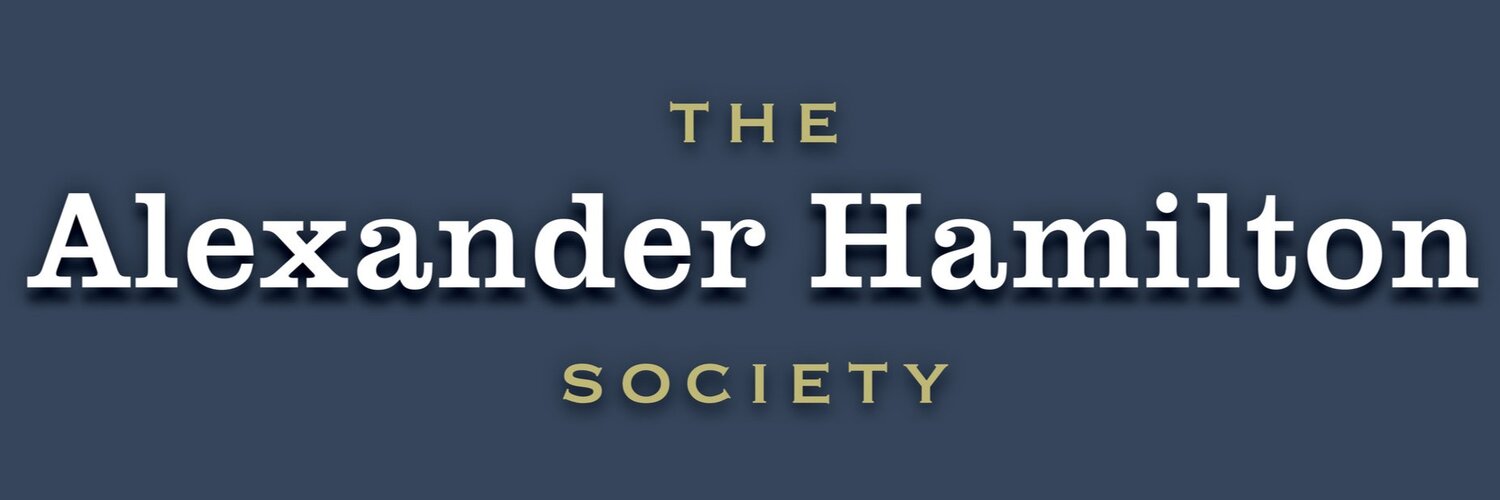The Alexander Hamilton Society recently completed its flagship program: the Alexander Hamilton Society National Institute. This fully funded, one-week seminar-style course took place in Washington, D.C. from June 3, 2018 – June 10, 2018 and explored the foundational framework of Hamiltonian studies. Comprising of two classroom sessions per day with leading AHS faculty, the National Institute educated students in the first principles of strategic, defense, and economic policies while challenging them to think independently, creatively, and strategically about the challenges to America’s historic place in the world.
Pulling from a pool of over 10,000 undergraduate and graduate students who annually attend our campus programs, the highly selective application and interview process yielded 14 students who have an excellent academic track record, demonstrate campus leadership, and maintain an interest in public service.
After an opening reception hosted by Walter Russell Mead, participants attended their first day of seminar on War & Politics with Harvard University’s Dr. Stephen Rosen. They read excerpts from Sun Tzu’s The Art of War and Carl von Clausewitz’s On War then discussed war theory and how it relates to modern American Politics.
This experience was augmented by exposure to national security practitioners, AHS alumni and renown scholars. Students grappled with how America has defined its core national interests while analyzing the various ways in which it has pursued them.
General David Petraeus (Ret.) joined the group in the afternoon and led a discussion on the surge in Iraq, tactics, and implications for policy. For dinner that evening, participants were joined by KPMG Federal Advisory’s Manager of Forensic Investigations, Theresa Campobasso, who gave a presentation on Security Clearances.
On Day Two, participants heard from Princeton University’s Dr. Aaron Friedberg. They read Colin Dueck’s Reluctant Crusaders and had a discussion on American Grand Strategy.
On Day Three, participants learned about The American Economic Order, including global trade and finance, economic institutions, and challenges facing the U.S. economy today. The Chicago Council on Global Affairs’ Dr. Phil Levy had participants prepare by reading articles on U.S. Foreign Aid, the World Trade Organization, and President Trump’s approach to trade deals. With few Economics majors in the group, it was an enlightening discussion for participants.
Jones Day’s Paul Lettow and the U.S. Department of the Treasury’s Brent McIntosh joined participants for lunch and discussed how inter-agency function operates within the National Security Council, a topic which was useful for preparation for Saturday’s Simulation.
American University’s Dr. Alan Levine led the fourth day of lecture on the Foundations of American Exceptionalism. Participants read primary sources including “Federalist Paper No. 1”, John F. Kennedy’s “First Inaugural Address,” and Ronald Reagan’s “Farewell Address.” They also explored founding principles through pieces by Edmund Burke and Condorcet. Dr. Frederick Kagan joined participants for lunch and gave a fantastic overview of the internal structure of the Department of Defense.
For their last day of seminar, AHS’s Dr. Gabriel Scheinmann lead on exercise on the formulation of a National Security Strategy. After reading the overviews of the last three NSS, participants were broken into groups to draft their own. They learned the importance of teamwork and nuance as they raced to draft their own overviews with a tight deadline.
Later in the day, AHS alumnus and Center for Strategic and Budgetary Assessments’ Ryan Boone joined the group to prepare them for a crisis simulation surrounding the Taiwanese Strait and the South China Sea. The simulation required participants to take on a role within the U.S. Government or the Chinese Government and make “policy” decisions. They utilized their new-found knowledge of grand strategy, economics, and American principles to make decisions to try and deter the other team from starting a war.











